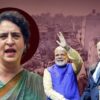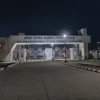The Delhi High Court on Tuesday ruled out WhatsApp group chats, presented as evidence in the murder of two Muslim men during the Delhi Riots case of 2020. The Court was hearing five cases in the Delhi riots, which killed two muslim men. The five cases are part of the nine cases, in which twelve of the accused are common to all nine cases.
The dead bodies of two Muslim men and their burnt motorcycle were found along the drain on February 27. Aamir was a scrap collector and the father of two daughters, and Hashim worked in a garment factory.
Accused Lokesh refused to accept the WhatsApp chats retrieved from the witness’s phone and claimed that he did not share any text against any particular community, though he did not deny that his phone contained a WhatsApp group called ‘Katta Hindu Ekta’ and that the investigation officer took it.
The statements of the witnesses recorded say that they were present at Bhagirathi Vihar Nala Pulia, carrying stones, cudgels, sticks, swords and iron rods, etc. and were shouting slogans like “Jai Sri Ram” and “Har Har Mahadev”. The accused are Jatin Sharma, Lokesh Solanki, Sahil (Babu), Vivek Panchal, Rishabh Chaudhary, Pankaj Sharma, Sumit (Badshah), Ankit Chaudhary (Fauji), Prince, Tinku, Sandeep (Mogl) and Himanshi Thakur.
The accused were arrested for the murder of nine Muslims after checking their identity in the Delhi pogrom. They stated that a mob stopped two persons riding an Apache bike and, after ascertaining their identity as muslims, the mob killed both the persons with stones, cudgels, sticks and iron rods and threw their bodies in the drain (nala) along with the bike.
Sh. Nishant Tyagi, ld. Counsel for the accused, Lokesh Solanki, argued that no evidence exists to show that any disturbance was created because of Lokesh’s messages.
The court further said that WhatsApp chats can be taken as ‘corroborative’ input and not as substantial proof.
The Court delivered the Judgment of acquittal as none of the witnesses of the prosecution could identify the accused as part of the mob of rioters, who killed the victim Aamir, in the case.
“Accused Lokesh did not hold any position of responsibility, so his messages could be given importance by anyone else. Thus, no one had listened to him and no one was influenced by his messages,” the court said.
However, Public Prosecutor for the state, Saleem Ahmed, countered that there is no requirement in law that there should be some consequence due to the hateful messages. He also noted that when all the messages posted by Lokesh in the WhatsApp group are read in totality, there is no doubt that it will amount to S 153 (A) [Promoting enmity between different groups on the ground of religion, race, place of birth, residence, language, etc.].
Further, he also argued that the deceased Aamir’s phone, another evidence submitted in the case, was in the possession of the accused Pawan, which the accused had denied using.
Ms. Mangla Verma, ld. Counsel appearing on behalf of the victim also argued that Section 153-A (a) & (b) IPC do not require any consequent impact.
“Witness also did not support the case of prosecution, and he was also declared hostile on the point of knowing some accused and about confession made by Lokesh for killing muslim persons, along with other accused persons and about knowing the chats in the WhatsApp group,” the court observed.



























































